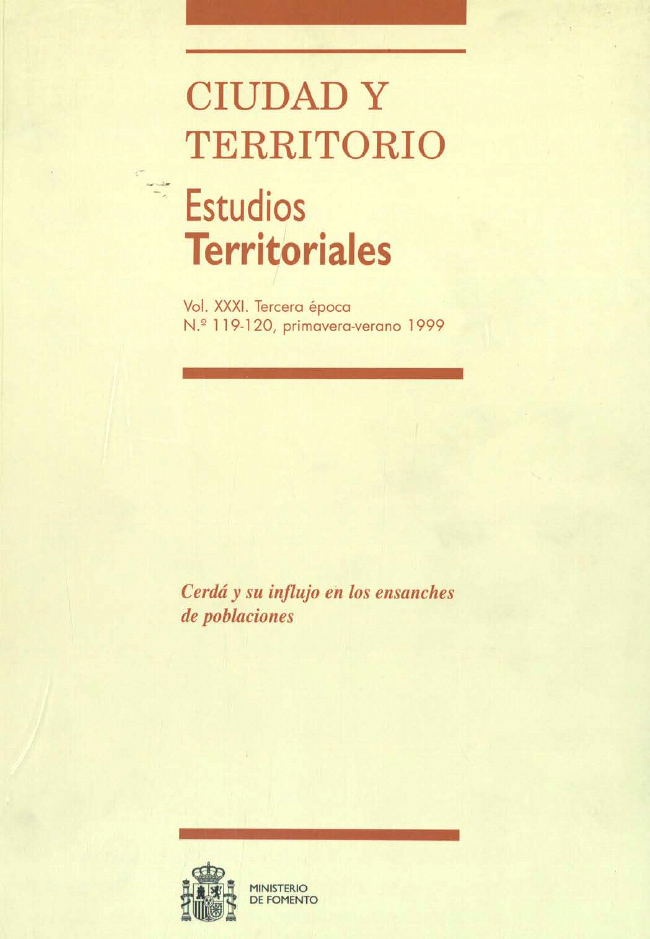The Decline and Fall of Town Planning Law in Spain: from Cerda's Public Works Town Planning to Private Town Planning
Keywords:
Cerdá, Derecho urbanístico, Obras públicas, Expropiación, Historia del urbanismoAbstract
«Town and Country Planning Law shall set a limit upon such Planning and Building for such Planning is here held to be of Public Concern and thus not merely an adjunct deriving from the right to Private Property». For the author, Spanish T&C Planning is grounded upon this idea of planning as works to the Public benefit right through from the 1879 Compulsory Purchase Act (this much influenced by Cerda) on to the 1956 Land Act which excluded from its idea of a fair price for compulsory purchase any benefits accruing from public planning in any given plan or project. In the wake of the 1975 and 1990 Acts, the decision of the Constitutional Court of March 20'", 1997 is here seen as to be a cutting back on the reach of the state's planning powers, this being made abundantly clear by the 1998 Act which sets up the Private Project as the model for planning in line with its two predecessors.
Downloads
Downloads
Published
How to Cite
Issue
Section
License
Copyright (c) 1999 Ramón Parada

This work is licensed under a Creative Commons Attribution-NonCommercial-NoDerivatives 4.0 International License.
Considering the provisions of the current legislation on Intellectual Property, and in accordance with them, all authors publishing in CyTET give -in a non-exclusive way and without time limit- to the Ministry of Transport, Mobility and Urban Agenda the rights to disseminate, reproduce, communicate and distribute in any current or future format, on paper or electronic, the original or derived version of their work under a Creative Commons Attribution-NonCommercial-NoDerivative 4.0 license International (CC BY-NC-ND 4.0), as well as to include or assign to third parties the inclusion of its content in national and international indexes, repositories and databases, with reference and recognition in any case of its authorship.
In addition, when sending the work, the author(s) declares that it is an original work in which the sources that have been used are recognized, committing to respect the scientific evidence, to no longer modify the original data and to verify or refute its hypothesis. Author(s) also declare that the essential content of the work has not been previously published nor will it be published in any other publication while it is under evaluation by CyTET; and that it has not been simultaneously sent to another journal.
Authors must sign a Transfer of Rights Form, which will be sent to them from the CyTET Secretariat once the article is accepted for publication.
With the aim of promoting the dissemination of knowledge, CyTET joins the Open Journal Access (OA) movement and delivers all of its content to various national and international indexes, repositories and databases under this protocol; therefore, the submission of a work to be published in the journal presupposes the explicit acceptance by the author of this distribution method.
Authors are encouraged to reproduce and host their work published in CyTET in institutional repositories, web pages, etc. with the intention of contributing to the improvement of the transfer of knowledge and the citation of said works.








 Enlace a CyTET en Linkedin
Enlace a CyTET en Linkedin